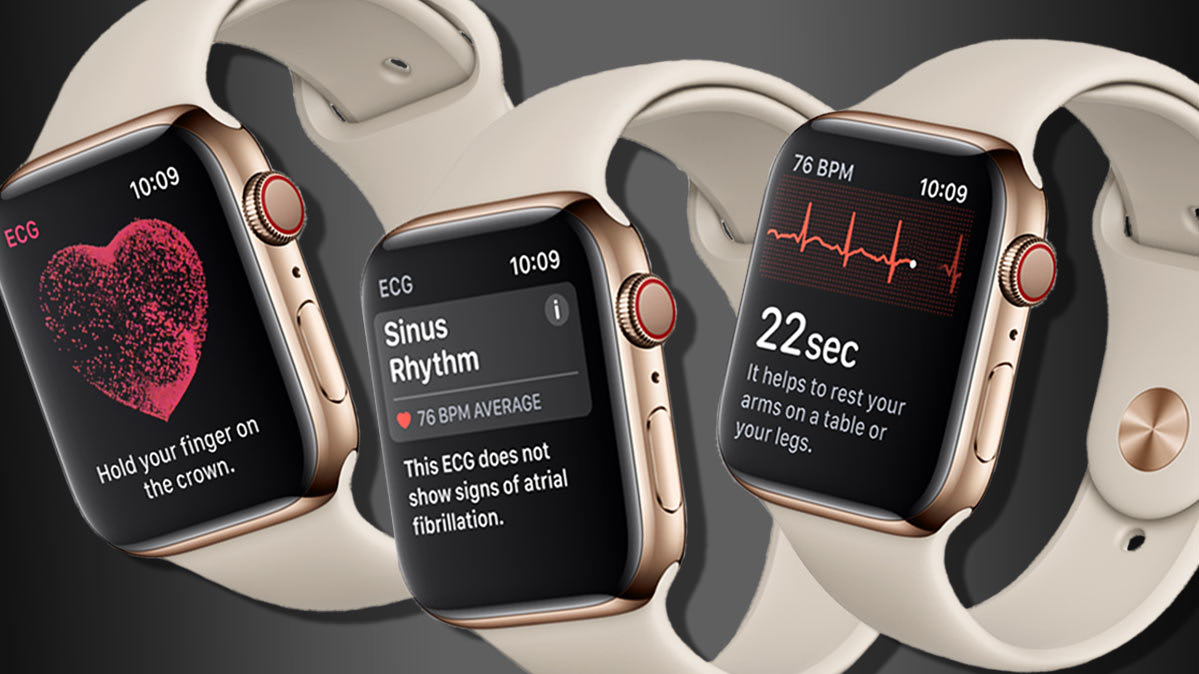
Stanford Medicine has released the results of its Apple Watch heart study, more than one year after it started. Overall, it seems to have been a success with a couple of caveats. Of the 400,000 participants, only 0.5% received warnings of irregular heart rhythms. What’s interesting is that of those participants who received those warnings, 84% of the notifications were atrial fibrillation episodes which could be serious signs of trouble. While not great news that the participants had atrial fibrillation episodes, it is good news that the Watch detected it, and they could follow up with their doctor. Only 34% of those participants who received notifications also agreed to wear an ECG patch for a week to better understand the irregularities.
Stanford Medicine researchers presented their findings today at the American College of Cardiology’s 68th Annual Scientific Session and Expo. Study results showed 0.5 percent of the over 400,000 participants received an irregular heart rhythm notification, illustrating the feature’s ability to give a user important health information without creating unnecessary burden to their doctor’s schedule
All of that said, this was the largest study ever of its kind in history. The goal of the study was to evaluate Apple Watch’s irregular rhythm notification. If an irregular rhythm was detected, participants received a telehealth consultation with a doctor and an electrocardiogram patch for additional supervision.
The great part of this study, regardless of the outcome, is that Apple is building on and testing its technology to ensure that it works as it’s intended to. This kind of study will certainly help to save lives in the future, and I think that’s great news. It will also give Apple, as well as other technology companies the ability to do more research and really understand what kinds of products they can bring forward that will help people to improve their health. It doesn’t always have to be a life/death situation. I’ve been saying for a few years now that it would be nice to have some kind of blood sugar testing mechanism in an Apple Watch. Maybe that’s not even possible, but the idea is that someone could get a notification if their blood sugar started to get low. Knowing this could, in theory, save someone’s life, but it doesn’t have to get that far. If you received a notification, you could address the issue before it became a major concern.
Apple is trying to offer better health information to patients:
“As physicians, we are always trying to find ways to offer patients health information that is meaningful to them for individualized care. Seeing medical research reflect what we’re hearing from consumers is positive and we’re excited to see Apple Watch helping even more consumers in the future while collaborating with the medical community to further research.”
Sumbul Desi, MD, Apple’s Vice President of Health
So what’s next for Apple with its Watch? That remains to be seen, but I think the fact that they’re studying the efficiency of the technology is a great sign. Hopefully Apple doesn’t move too far away from hardware this year, and continues to work on these features because I think they’re really important and they can make a huge difference in someone’s life.

[…] post Apple and Stanford Medicine Release Results from Apple Watch Study appeared first on Saintel […]